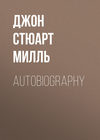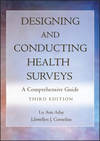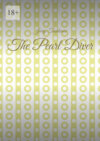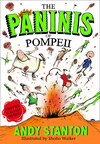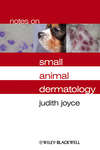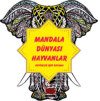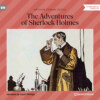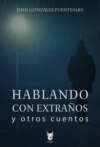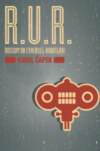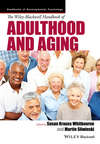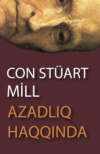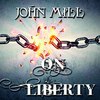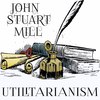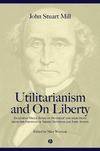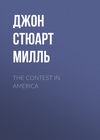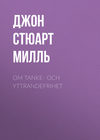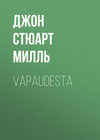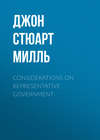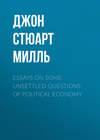Kitabı oku: «Autobiography»
CHAPTER I
CHILDHOOD AND EARLY EDUCATION
It seems proper that I should prefix to the following biographical sketch some mention of the reasons which have made me think it desirable that I should leave behind me such a memorial of so uneventful a life as mine. I do not for a moment imagine that any part of what I have to relate can be interesting to the public as a narrative or as being connected with myself. But I have thought that in an age in which education and its improvement are the subject of more, if not of profounder, study than at any former period of English history, it may be useful that there should be some record of an education which was unusual and remarkable, and which, whatever else it may have done, has proved how much more than is commonly supposed may be taught, and well taught, in those early years which, in the common modes of what is called instruction, are little better than wasted. It has also seemed to me that in an age of transition in opinions, there may be somewhat both of interest and of benefit in noting the successive phases of any mind which was always pressing forward, equally ready to learn and to unlearn either from its own thoughts or from those of others. But a motive which weighs more with me than either of these, is a desire to make acknowledgment of the debts which my intellectual and moral development owes to other persons; some of them of recognised eminence, others less known than they deserve to be, and the one to whom most of all is due, one whom the world had no opportunity of knowing. The reader whom these things do not interest, has only himself to blame if he reads farther, and I do not desire any other indulgence from him than that of bearing in mind that for him these pages were not written.
I was born in London, on the 20th of May, 1806, and was the eldest son of James Mill, the author of the History of British India. My father, the son of a petty tradesman and (I believe) small farmer, at Northwater Bridge, in the county of Angus, was, when a boy, recommended by his abilities to the notice of Sir John Stuart, of Fettercairn, one of the Barons of the Exchequer in Scotland, and was, in consequence, sent to the University of Edinburgh, at the expense of a fund established by Lady Jane Stuart (the wife of Sir John Stuart) and some other ladies for educating young men for the Scottish Church. He there went through the usual course of study, and was licensed as a Preacher, but never followed the profession; having satisfied himself that he could not believe the doctrines of that or any other Church. For a few years he was a private tutor in various families in Scotland, among others that of the Marquis of Tweeddale, but ended by taking up his residence in London, and devoting himself to authorship. Nor had he any other means of support until 1819, when he obtained an appointment in the India House.
In this period of my father's life there are two things which it is impossible not to be struck with: one of them unfortunately a very common circumstance, the other a most uncommon one. The first is, that in his position, with no resource but the precarious one of writing in periodicals, he married and had a large family; conduct than which nothing could be more opposed, both as a matter of good sense and of duty, to the opinions which, at least at a later period of life, he strenuously upheld. The other circumstance, is the extraordinary energy which was required to lead the life he led, with the disadvantages under which he laboured from the first, and with those which he brought upon himself by his marriage. It would have been no small thing, had he done no more than to support himself and his family during so many years by writing, without ever being in debt, or in any pecuniary difficulty; holding, as he did, opinions, both in politics and in religion, which were more odious to all persons of influence, and to the common run of prosperous Englishmen, in that generation than either before or since; and being not only a man whom nothing would have induced to write against his convictions, but one who invariably threw into everything he wrote, as much of his convictions as he thought the circumstances would in any way permit: being, it must also be said, one who never did anything negligently; never undertook any task, literary or other, on which he did not conscientiously bestow all the labour necessary for performing it adequately. But he, with these burdens on him, planned, commenced, and completed, the History of India; and this in the course of about ten years, a shorter time than has been occupied (even by writers who had no other employment) in the production of almost any other historical work of equal bulk, and of anything approaching to the same amount of reading and research. And to this is to be added, that during the whole period, a considerable part of almost every day was employed in the instruction of his children: in the case of one of whom, myself, he exerted an amount of labour, care, and perseverance rarely, if ever, employed for a similar purpose, in endeavouring to give, according to his own conception, the highest order of intellectual education.
A man who, in his own practice, so vigorously acted up to the principle of losing no time, was likely to adhere to the same rule in the instruction of his pupil. I have no remembrance of the time when I began to learn Greek; I have been told that it was when I was three years old. My earliest recollection on the subject, is that of committing to memory what my father termed vocables, being lists of common Greek words, with their signification in English, which he wrote out for me on cards. Of grammar, until some years later, I learnt no more than the inflections of the nouns and verbs, but, after a course of vocables, proceeded at once to translation; and I faintly remember going through Aesop's Fables, the first Greek book which I read. The Anabasis, which I remember better, was the second. I learnt no Latin until my eighth year. At that time I had read, under my father's tuition, a number of Greek prose authors, among whom I remember the whole of Herodotus, and of Xenophon's Cyropaedia and Memorials of Socrates; some of the lives of the philosophers by Diogenes Laertius; part of Lucian, and Isocrates ad Demonicum and Ad Nicoclem. I also read, in 1813, the first six dialogues (in the common arrangement) of Plato, from the Euthyphron to the Theoctetus inclusive: which last dialogue, I venture to think, would have been better omitted, as it was totally impossible I should understand it. But my father, in all his teaching, demanded of me not only the utmost that I could do, but much that I could by no possibility have done. What he was himself willing to undergo for the sake of my instruction, may be judged from the fact, that I went through the whole process of preparing my Greek lessons in the same room and at the same table at which he was writing: and as in those days Greek and English lexicons were not, and I could make no more use of a Greek and Latin lexicon than could be made without having yet begun to learn Latin, I was forced to have recourse to him for the meaning of every word which I did not know. This incessant interruption, he, one of the most impatient of men, submitted to, and wrote under that interruption several volumes of his History and all else that he had to write during those years.
The only thing besides Greek, that I learnt as a lesson in this part of my childhood, was arithmetic: this also my father taught me: it was the task of the evenings, and I well remember its disagreeableness. But the lessons were only a part of the daily instruction I received. Much of it consisted in the books I read by myself, and my father's discourses to me, chiefly during our walks. From 1810 to the end of 1813 we were living in Newington Green, then an almost rustic neighbourhood. My father's health required considerable and constant exercise, and he walked habitually before breakfast, generally in the green lanes towards Hornsey. In these walks I always accompanied him, and with my earliest recollections of green fields and wild flowers, is mingled that of the account I gave him daily of what I had read the day before. To the best of my remembrance, this was a voluntary rather than a prescribed exercise. I made notes on slips of paper while reading, and from these in the morning walks, I told the story to him; for the books were chiefly histories, of which I read in this manner a great number: Robertson's histories, Hume, Gibbon; but my greatest delight, then and for long afterwards, was Watson's Philip the Second and Third. The heroic defence of the Knights of Malta against the Turks, and of the revolted Provinces of the Netherlands against Spain, excited in me an intense and lasting interest. Next to Watson, my favourite historical reading was Hooke's History of Rome. Of Greece I had seen at that time no regular history, except school abridgments and the last two or three volumes of a translation of Rollin's Ancient History, beginning with Philip of Macedon. But I read with great delight Langhorne's translation of Plutarch. In English history, beyond the time at which Hume leaves off, I remember reading Burnet's History of his Own Time, though I cared little for anything in it except the wars and battles; and the historical part of the Annual Register, from the beginning to about 1788, where the volumes my father borrowed for me from Mr. Bentham left off. I felt a lively interest in Frederic of Prussia during his difficulties, and in Paoli, the Corsican patriot; but when I came to the American War, I took my part, like a child as I was (until set right by my father) on the wrong side, because it was called the English side. In these frequent talks about the books I read, he used, as opportunity offered, to give me explanations and ideas respecting civilization, government, morality, mental cultivation, which he required me afterwards to restate to him in my own words. He also made me read, and give him a verbal account of, many books which would not have interested me sufficiently to induce me to read them of myself: among other's Millar's Historical View of the English Government, a book of great merit for its time, and which he highly valued; Mosheim's Ecclesiastical History, McCrie's Life of John Knox, and even Sewell and Rutty's Histories of the Quakers. He was fond of putting into my hands books which exhibited men of energy and resource in unusual circumstances, struggling against difficulties and overcoming them: of such works I remember Beaver's African Memoranda, and Collins's Account of the First Settlement of New South Wales. Two books which I never wearied of reading were Anson's Voyages, so delightful to most young persons, and a collection (Hawkesworth's, I believe) of Voyages round the World, in four volumes, beginning with Drake and ending with Cook and Bougainville. Of children's books, any more than of playthings, I had scarcely any, except an occasional gift from a relation or acquaintance: among those I had, Robinson Crusoe was pre-eminent, and continued to delight me through all my boyhood. It was no part, however, of my father's system to exclude books of amusement, though he allowed them very sparingly. Of such books he possessed at that time next to none, but he borrowed several for me; those which I remember are the Arabian Nights, Cazotte's Arabian Tales, Don Quixote, Miss Edgeworth's Popular Tales, and a book of some reputation in its day, Brooke's Fool of Quality.
In my eighth year I commenced learning Latin, in conjunction with a younger sister, to whom I taught it as I went on, and who afterwards repeated the lessons to my father; from this time, other sisters and brothers being successively added as pupils, a considerable part of my day's work consisted of this preparatory teaching. It was a part which I greatly disliked; the more so, as I was held responsible for the lessons of my pupils, in almost as full a sense as for my own: I, however, derived from this discipline the great advantage, of learning more thoroughly and retaining more lastingly the things which I was set to teach: perhaps, too, the practice it afforded in explaining difficulties to others, may even at that age have been useful. In other respects, the experience of my boyhood is not favourable to the plan of teaching children by means of one another. The teaching, I am sure, is very inefficient as teaching, and I well know that the relation between teacher and taught is not a good moral discipline to either. I went in this manner through the Latin grammar, and a considerable part of Cornelius Nepos and Caesar's Commentaries, but afterwards added to the superintendence of these lessons, much longer ones of my own.
In the same year in which I began Latin, I made my first commencement in the Greek poets with the Iliad. After I had made some progress in this, my father put Pope's translation into my hands. It was the first English verse I had cared to read, and it became one of the books in which for many years I most delighted: I think I must have read it from twenty to thirty times through. I should not have thought it worth while to mention a taste apparently so natural to boyhood, if I had not, as I think, observed that the keen enjoyment of this brilliant specimen of narrative and versification is not so universal with boys, as I should have expected both a priori and from my individual experience. Soon after this time I commenced Euclid, and somewhat later, Algebra, still under my father's tuition.
From my eighth to my twelfth year, the Latin books which I remember reading were, the Bucolics of Virgil, and the first six books of the Aeneid; all Horace, except the Epodes; the Fables of Phaedrus; the first five books of Livy (to which from my love of the subject I voluntarily added, in my hours of leisure, the remainder of the first decade); all Sallust; a considerable part of Ovid's Metamorphoses; some plays of Terence; two or three books of Lucretius; several of the Orations of Cicero, and of his writings on oratory; also his letters to Atticus, my father taking the trouble to translate to me from the French the historical explanations in Mingault's notes. In Greek I read the Iliad and Odyssey through; one or two plays of Sophocles, Euripides, and Aristophanes, though by these I profited little; all Thucydides; the Hellenics of Xenophon; a great part of Demosthenes, Aeschines, and Lysias; Theocritus; Anacreon; part of the Anthology; a little of Dionysius; several books of Polybius; and lastly Aristotle's Rhetoric, which, as the first expressly scientific treatise on any moral or psychological subject which I had read, and containing many of the best observations of the ancients on human nature and life, my father made me study with peculiar care, and throw the matter of it into synoptic tables. During the same years I learnt elementary geometry and algebra thoroughly, the differential calculus, and other portions of the higher mathematics far from thoroughly: for my father, not having kept up this part of his early acquired knowledge, could not spare time to qualify himself for removing my difficulties, and left me to deal with them, with little other aid than that of books: while I was continually incurring his displeasure by my inability to solve difficult problems for which he did not see that I had not the necessary previous knowledge.
As to my private reading, I can only speak of what I remember. History continued to be my strongest predilection, and most of all ancient history. Mitford's Greece I read continually; my father had put me on my guard against the Tory prejudices of this writer, and his perversions of facts for the whitewashing of despots, and blackening of popular institutions. These points he discoursed on, exemplifying them from the Greek orators and historians, with such effect that in reading Mitford my sympathies were always on the contrary side to those of the author, and I could, to some extent, have argued the point against him: yet this did not diminish the ever new pleasure with which I read the book. Roman history, both in my old favourite, Hooke, and in Ferguson, continued to delight me. A book which, in spite of what is called the dryness of its style, I took great pleasure in, was the Ancient Universal History, through the incessant reading of which, I had my head full of historical details concerning the obscurest ancient people, while about modern history, except detached passages, such as the Dutch War of Independence, I knew and cared comparatively little. A voluntary exercise, to which throughout my boyhood I was much addicted, was what I called writing histories. I successively composed a Roman History, picked out of Hooke; and an Abridgment of the Ancient Universal History; a History of Holland, from my favourite Watson and from an anonymous compilation; and in my eleventh and twelfth year I occupied myself with writing what I flattered myself was something serious. This was no less than a History of the Roman Government, compiled (with the assistance of Hooke) from Livy and Dionysius: of which I wrote as much as would have made an octavo volume, extending to the epoch of the Licinian Laws. It was, in fact, an account of the struggles between the patricians and plebeians, which now engrossed all the interest in my mind which I had previously felt in the mere wars and conquests of the Romans. I discussed all the constitutional points as they arose: though quite ignorant of Niebuhr's researches, I, by such lights as my father had given me, vindicated the Agrarian Laws on the evidence of Livy, and upheld, to the best of my ability, the Roman Democratic party. A few years later, in my contempt of my childish efforts, I destroyed all these papers, not then anticipating that I could ever feel any curiosity about my first attempts at writing and reasoning. My father encouraged me in this useful amusement, though, as I think judiciously, he never asked to see what I wrote; so that I did not feel that in writing it I was accountable to any one, nor had the chilling sensation of being under a critical eye.
But though these exercises in history were never a compulsory lesson, there was another kind of composition which was so, namely, writing verses, and it was one of the most disagreeable of my tasks. Greek and Latin verses I did not write, nor learnt the prosody of those languages. My father, thinking this not worth the time it required, contented himself with making me read aloud to him, and correcting false quantities. I never composed at all in Greek, even in prose, and but little in Latin. Not that my father could be indifferent to the value of this practice, in giving a thorough knowledge of these languages, but because there really was not time for it. The verses I was required to write were English. When I first read Pope's Homer, I ambitiously attempted to compose something of the same kind, and achieved as much as one book of a continuation of the Iliad. There, probably, the spontaneous promptings of my poetical ambition would have stopped; but the exercise, begun from choice, was continued by command. Conformably to my father's usual practice of explaining to me, as far as possible, the reasons for what he required me to do, he gave me, for this, as I well remember, two reasons highly characteristic of him: one was, that some things could be expressed better and more forcibly in verse than in prose: this, he said, was a real advantage. The other was, that people in general attached more value to verse than it deserved, and the power of writing it, was, on this account, worth acquiring. He generally left me to choose my own subjects, which, as far as I remember, were mostly addresses to some mythological personage or allegorical abstraction; but he made me translate into English verse many of Horace's shorter poems: I also remember his giving me Thomson's Winter to read, and afterwards making me attempt (without book) to write something myself on the same subject. The verses I wrote were, of course, the merest rubbish, nor did I ever attain any facility of versification, but the practice may have been useful in making it easier for me, at a later period, to acquire readiness of expression.1 I had read, up to this time, very little English poetry. Shakspeare my father had put into my hands, chiefly for the sake of the historical plays, from which, however, I went on to the others. My father never was a great admirer of Shakspeare, the English idolatry of whom he used to attack with some severity. He cared little for any English poetry except Milton (for whom he had the highest admiration), Goldsmith, Burns, and Gray's Bard, which he preferred to his Elegy: perhaps I may add Cowper and Beattie. He had some value for Spenser, and I remember his reading to me (unlike his usual practice of making me read to him) the first book of the Fairie Queene; but I took little pleasure in it. The poetry of the present century he saw scarcely any merit in, and I hardly became acquainted with any of it till I was grown up to manhood, except the metrical romances of Walter Scott, which I read at his recommendation and was intensely delighted with; as I always was with animated narrative. Dryden's Poems were among my father's books, and many of these he made me read, but I never cared for any of them except Alexander's Feast, which, as well as many of the songs in Walter Scott, I used to sing internally, to a music of my own: to some of the latter, indeed, I went so far as to compose airs, which I still remember. Cowper's short poems I read with some pleasure, but never got far into the longer ones; and nothing in the two volumes interested me like the prose account of his three hares. In my thirteenth year I met with Campbell's poems, among which Lochiel, Hohenlinden, The Exile of Erin, and some others, gave me sensations I had never before experienced from poetry. Here, too, I made nothing of the longer poems, except the striking opening of Gertrude of Wyoming, which long kept its place in my feelings as the perfection of pathos.
During this part of my childhood, one of my greatest amusements was experimental science; in the theoretical, however, not the practical sense of the word; not trying experiments – a kind of discipline which I have often regretted not having had – nor even seeing, but merely reading about them. I never remember being so wrapt up in any book, as I was in Joyce's Scientific Dialogues; and I was rather recalcitrant to my father's criticisms of the bad reasoning respecting the first principles of physics, which abounds in the early part of that work. I devoured treatises on Chemistry, especially that of my father's early friend and schoolfellow, Dr. Thomson, for years before I attended a lecture or saw an experiment.
From about the age of twelve, I entered into another and more advanced stage in my course of instruction; in which the main object was no longer the aids and appliances of thought, but the thoughts themselves. This commenced with Logic, in which I began at once with the Organon, and read it to the Analytics inclusive, but profited little by the Posterior Analytics, which belong to a branch of speculation I was not yet ripe for. Contemporaneously with the Organon, my father made me read the whole or parts of several of the Latin treatises on the scholastic logic; giving each day to him, in our walks, a minute account of what I had read, and answering his numerous and most searching questions. After this, I went in a similar manner through the Computatio sive Logica of Hobbes, a work of a much higher order of thought than the books of the school logicians, and which he estimated very highly; in my own opinion beyond its merits, great as these are. It was his invariable practice, whatever studies he exacted from me, to make me as far as possible understand and feel the utility of them: and this he deemed peculiarly fitting in the case of the syllogistic logic, the usefulness of which had been impugned by so many writers of authority. I well remember how, and in what particular walk, in the neighbourhood of Bagshot Heath (where we were on a visit to his old friend Mr. Wallace, then one of the Mathematical Professors at Sandhurst) he first attempted by questions to make me think on the subject, and frame some conception of what constituted the utility of the syllogistic logic, and when I had failed in this, to make me understand it by explanations. The explanations did not make the matter at all clear to me at the time; but they were not therefore useless; they remained as a nucleus for my observations and reflections to crystallize upon; the import of his general remarks being interpreted to me, by the particular instances which came under my notice afterwards. My own consciousness and experience ultimately led me to appreciate quite as highly as he did, the value of an early practical familiarity with the school logic. I know of nothing, in my education, to which I think myself more indebted for whatever capacity of thinking I have attained. The first intellectual operation in which I arrived at any proficiency, was dissecting a bad argument, and finding in what part the fallacy lay: and though whatever capacity of this sort I attained, was due to the fact that it was an intellectual exercise in which I was most perseveringly drilled by my father, yet it is also true that the school logic, and the mental habits acquired in studying it, were among the principal instruments of this drilling. I am persuaded that nothing, in modern education, tends so much, when properly used, to form exact thinkers, who attach a precise meaning to words and propositions, and are not imposed on by vague, loose, or ambiguous terms. The boasted influence of mathematical studies is nothing to it; for in mathematical processes, none of the real difficulties of correct ratiocination occur. It is also a study peculiarly adapted to an early stage in the education of philosophical students, since it does not presuppose the slow process of acquiring, by experience and reflection, valuable thoughts of their own. They may become capable of disentangling the intricacies of confused and self-contradictory thought, before their own thinking faculties are much advanced; a power which, for want of some such discipline, many otherwise able men altogether lack; and when they have to answer opponents, only endeavour, by such arguments as they can command, to support the opposite conclusion, scarcely even attempting to confute the reasonings of their antagonists; and, therefore, at the utmost, leaving the question, as far as it depends on argument, a balanced one.
During this time, the Latin and Greek books which I continued to read with my father were chiefly such as were worth studying, not for the language merely, but also for the thoughts. This included much of the orators, and especially Demosthenes, some of whose principal orations I read several times over, and wrote out, by way of exercise, a full analysis of them. My father's comments on these orations when I read them to him were very instructive to me. He not only drew my attention to the insight they afforded into Athenian institutions, and the principles of legislation and government which they often illustrated, but pointed out the skill and art of the orator – how everything important to his purpose was said at the exact moment when he had brought the minds of his audience into the state most fitted to receive it; how he made steal into their minds, gradually and by insinuation, thoughts which, if expressed in a more direct manner, would have roused their opposition. Most of these reflections were beyond my capacity of full comprehension at the time; but they left seed behind, which germinated in due season. At this time I also read the whole of Tacitus, Juvenal, and Quintilian. The latter, owing to his obscure style and to the scholastic details of which many parts of his treatise are made up, is little read, and seldom sufficiently appreciated. His book is a kind of encyclopaedia of the thoughts of the ancients on the whole field of education and culture; and I have retained through life many valuable ideas which I can distinctly trace to my reading of him, even at that early age. It was at this period that I read, for the first time, some of the most important dialogues of Plato, in particular the Gorgias, the Protagoras, and the Republic. There is no author to whom my father thought himself more indebted for his own mental culture, than Plato, or whom he more frequently recommended to young students. I can bear similar testimony in regard to myself. The Socratic method, of which the Platonic dialogues are the chief example, is unsurpassed as a discipline for correcting the errors, and clearing up the confusions incident to the intellectus sibi permissus, the understanding which has made up all its bundles of associations under the guidance of popular phraseology. The close, searching elenchus by which the man of vague generalities is constrained either to express his meaning to himself in definite terms, or to confess that he does not know what he is talking about; the perpetual testing of all general statements by particular instances; the siege in form which is laid to the meaning of large abstract terms, by fixing upon some still larger class-name which includes that and more, and dividing down to the thing sought – marking out its limits and definition by a series of accurately drawn distinctions between it and each of the cognate objects which are successively parted off from it – all this, as an education for precise thinking, is inestimable, and all this, even at that age, took such hold of me that it became part of my own mind. I have felt ever since that the title of Platonist belongs by far better right to those who have been nourished in and have endeavoured to practise Plato's mode of investigation, than to those who are distinguished only by the adoption of certain dogmatical conclusions, drawn mostly from the least intelligible of his works, and which the character of his mind and writings makes it uncertain whether he himself regarded as anything more than poetic fancies, or philosophic conjectures.
